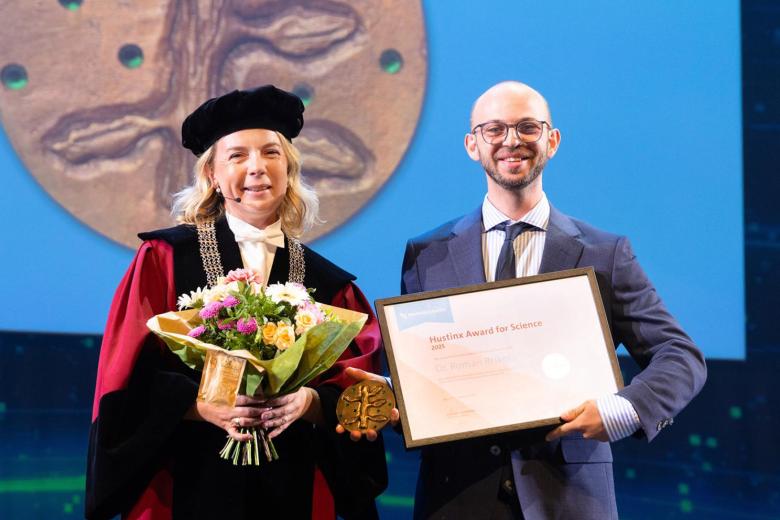Will AI systems make your job obsolete?
We have seen a lot of industry disruptions caused by AI-generated content in recent months. The most notable of these disruptions came from OpenAI. First with DALL·E 2, an AI system that can create realistic images and art based on a given text, and more recently with ChatGPT. ChatGPT is a language model designed to generate human-like text responses to prompts.
We asked SBE researchers Jermain Kaminski, Emir Efendić, and Marc Becker to share their thoughts on how AI systems, like those of OpenAI, are impacting the labour market.

AI's impact on the Labour Market
To Emir Efendić, Assistant Professor at SBE, it seems too early to tell just how AI is impacting the labour market. "The AI systems can produce content, but it is unclear to what extent they can manage existing content or generate new content. The way we work will certainly change, but whether work itself will change? I’m less inclined to say. As with all new things, it remains to be seen," he adds.
Jermain Kaminski, Assistant Professor at SBE, seems to agree with Emir's sentiment on new content: "New and original thoughts will still require human touch for some time to come. In fact, I would expect ‘written by a human’ to become a differentiating label in a world where computer-generated content is more ubiquitous."

The Autopilot of White-Collar Work
Jermain also stresses that a key competency of the future will not only be the intelligent use of Large Language Models (LLMs) like ChatGPT but even more to debug the output and verify information. A skill that he plans on teaching his students for future assessments.
"The use of Large Language Models like ChatGPT is similar to autopilot in commercial aeroplanes. Just like how a pilot cannot close their eyes during the autopilot, we cannot blindly accept what ChatGPT and other LLMs generate." - Jermain Kaminski

A Blessing or a Curse?
Jermain also mentions how his research colleagues at RWTH Aachen University recently found that LLMs lead to significant productivity advancements in business operations. They augment human judgement rather than replace it.
Marc Becker, PhD at SBE, adds to this sentiment that programmes like ChatGPT have the potential improve work efficiency and help with creativity blocks. However, Marc remarks that integrating AI in business can have negative impacts as well: "If people can do the same amount of work in less time, management might eventually decide to reduce team sizes to increase profitability."

Also read
-
Prof. Dr. Wim Gijselaers receives prestigious AERA Distinguished Career Award
Prof. Dr. Wim Gijselaers has received the Distinguished Career Award from AERA Division I, recognising his pioneering research, mentorship and decades of leadership in education in the professions.

-
Research on AI in the workplace: Dr. Roman Briker wins Hustinx Science Award
The School of Business and Economics is proud to share that Dr. Roman Briker, Assistant Professor of Organisational Behaviour, has been awarded the 2025 Hustinx Science Award.

-
Financial Times MiM Ranking 2025: Maastricht University SBE #1 in the Netherlands, Top 100 Worldwide
We are proud to share that Maastricht University’s School of Business and Economics (SBE) has been ranked among the top 100 business schools worldwide and #1 in the Netherlands by the Financial Times in the Masters in Management (MiM) Ranking 2025. This recognition highlights the quality, impact...
